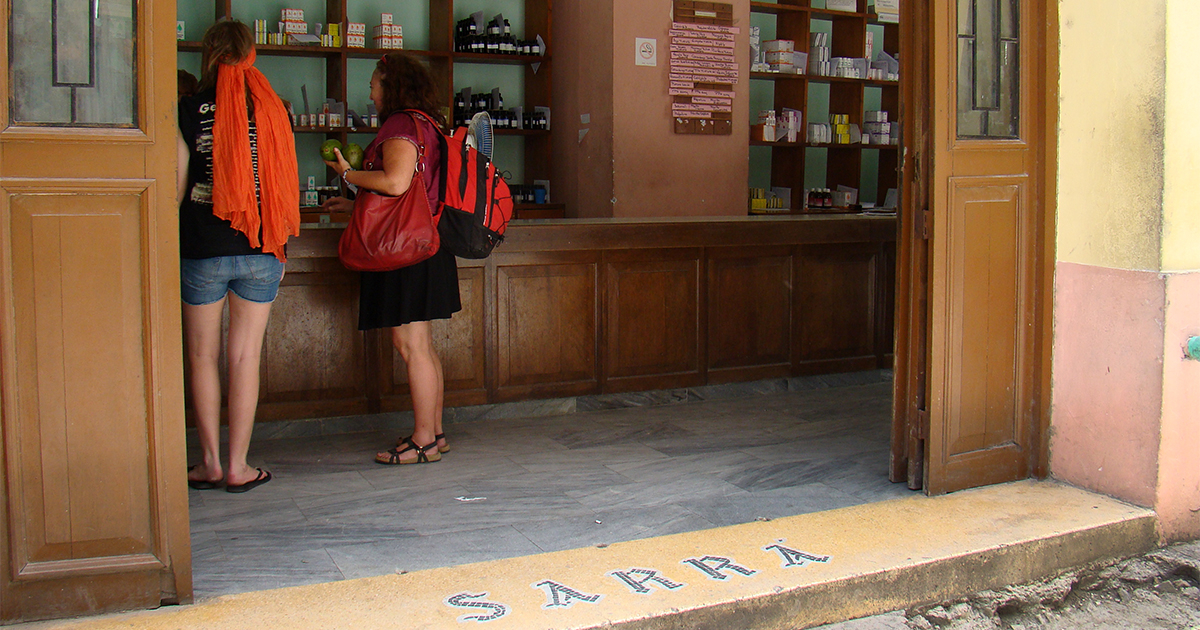
The Group of Biotechnology and Pharmaceutical Industries of Cuba (BioCubaFarma), responsible for 63% of basic medicines distributed on the island, stated that the shortage in pharmacies It is mainly due to "the lack of timely financing to pay suppliers."
In a report published this Wednesday by the newspaper Granma, the company points to the failures in the budget by the State, capital with which the acquisition of raw materials, packaging materials, and supplies is negotiated.
"More than 85% of the products used in the production of medicines are imported, and 92% of the active ingredients, come mainly from distant markets such as China, India and Europe; as well as 60% of the packaging materials," explained Rita María García Almaguer, Director of Operations at BioCubaFarma.
Of the 801 medications that make up the basic table, the official details, the company is responsible for 63% of these: 505 medicines are produced by the National Pharmaceutical Industry and another 296, 37%, are imported in finished form by the Minsap.
For distribution in the pharmacy network, 370 lines correspond, which represent 47% of the basic medication table. Of them, 301 were nationally produced and 69 were imported, he said.
The lack of financing, the board said, led to the plant strike during 2016 and part of 2017, since the resources were not available in time, the production of some drugs was stopped "which did not allow us to comply with the national health system."
Starting in June, a significant volume of raw materials began to enter, and correspondingly, a group of medications began to have a presence in the system.
Even so, in August the lack and low coverage persisted, at the pharmacy level, of more than 20 control card medications and medications that are in high demand, some of which respond to diseases of high prevalence in the population, said Cristina Lara Bastanzuri, head of the Department of Planning and Analysis of Medicines, Reagents and Pharmacoepidemiology of the Minsap.
Among them, for example, the specialist mentioned thiazide diuretics, which are commonly known as Hydrochlorothiazide and Chlorthalidone.
"Both coincided with affectation and that means 1.1 or 1.2 million Cubans who today take one of these as part of the treatment for their hypertension. Likewise, the availability of Enalapril and Captopril was maintained intermittently, and that translates into 1.4 million patients who today take them, sometimes even combined with thiazide diuretics," he added.
This was not a situation that was overlooked by the health system, said the interviewee. "In the month of August, meetings began to be held at the highest management level, taking an important group of measures to resolve or at least alleviate the shortage situation.".
From there, he commented, “the situation that existed” with a group of Chinese suppliers was resolved, important in the issue of raw materials and inputs to production.
"Also The Ministry of Economy and Planning assigned us financing in a differentiated way to increase coverage of control card medications," said Lara Bastanzuri.
In that sense, he commented that A first partial of Hydrochlorothiazide, omeprazole, salbutamol and metformin has already arrived. “We will also have availability of imported medications parallel to the delivery of the national industry, which has been one of the measures to try to increase coverage at the pharmacy level.”
Today there are ten medications for which between 60 and 120 days of consumption are being imported. These are Hydrochlorothiazide, Enalapril, Captopril, Nifedipine, metformin, Isosorbide dinitrate, salbutamol, salazosulfapyridine, Omeprazole; and Azithromycin in tablet form, as specified.
After the aforementioned effects, said the Director of Operations of BioCubaFarma, we can say that Drugs such as salbutamol spray are stable today, with coverage of more than 60 days throughout the network.
“The biggest impact we have is with the delivery of Dipyrone, a product highly demanded by the Cuban population, which today requires more than 1,000 million tablets of this painkiller per year", held.
This warrants, for one month of coverage, the delivery to the health system and pharmacies between 84 and 86 million dipyrone tablets.
"In the last six months the coverage of this product has been very unstable, since our plants do not have the capacity to produce that volume. We manufacture a quantity that is sent directly to hospitals, and the rest is imported from China," he said.
Debts with Chinese suppliers caused deliveries to be delayed, "now resumed, but due to the logistics cycle, given that it is imported from China, it takes two months."
"Starting in January we will have stability of the 30 days of coverage each month, and The necessary amount is already planned until June 2018"he assured.
With information from Granma
What do you think?
COMMENTFiled in: